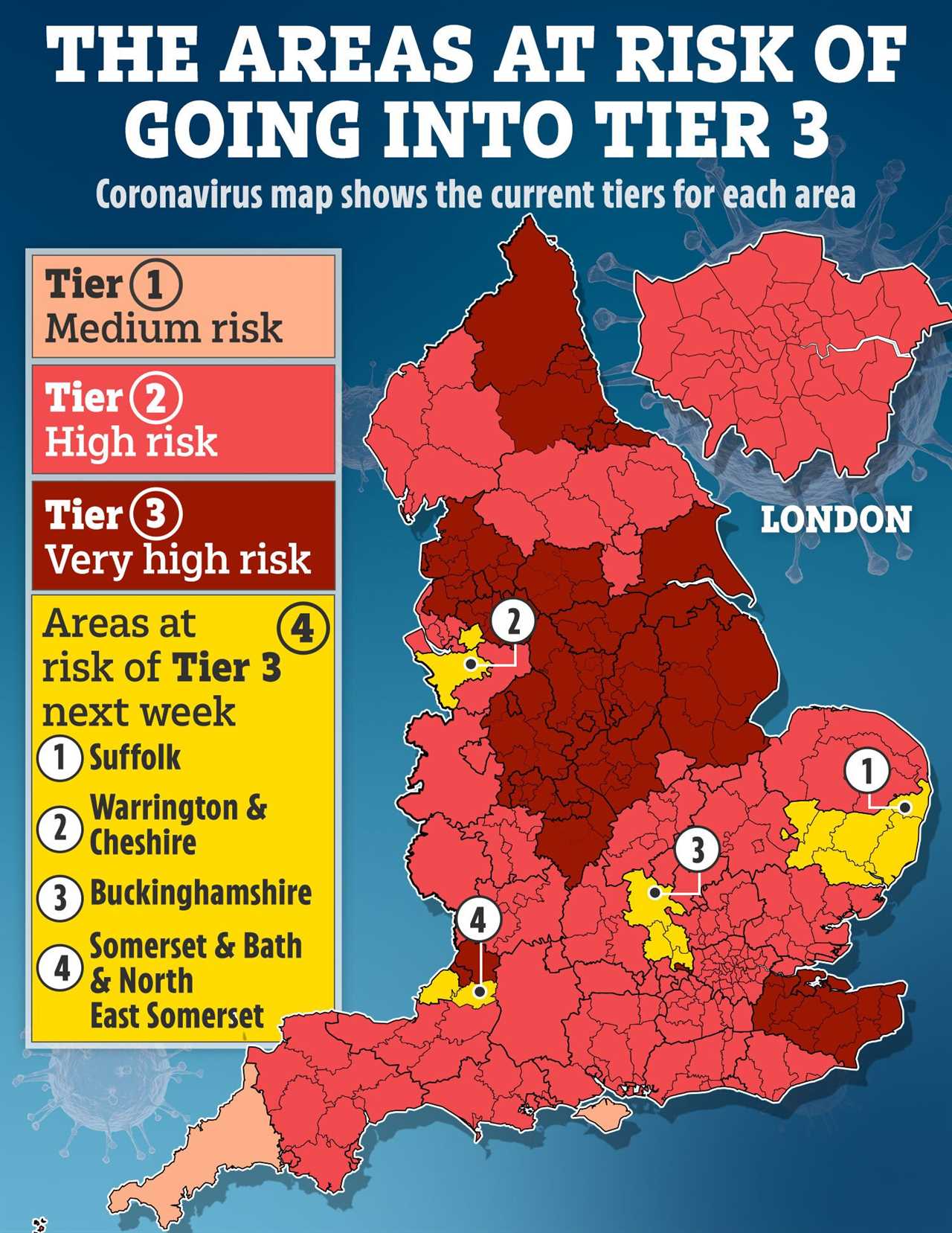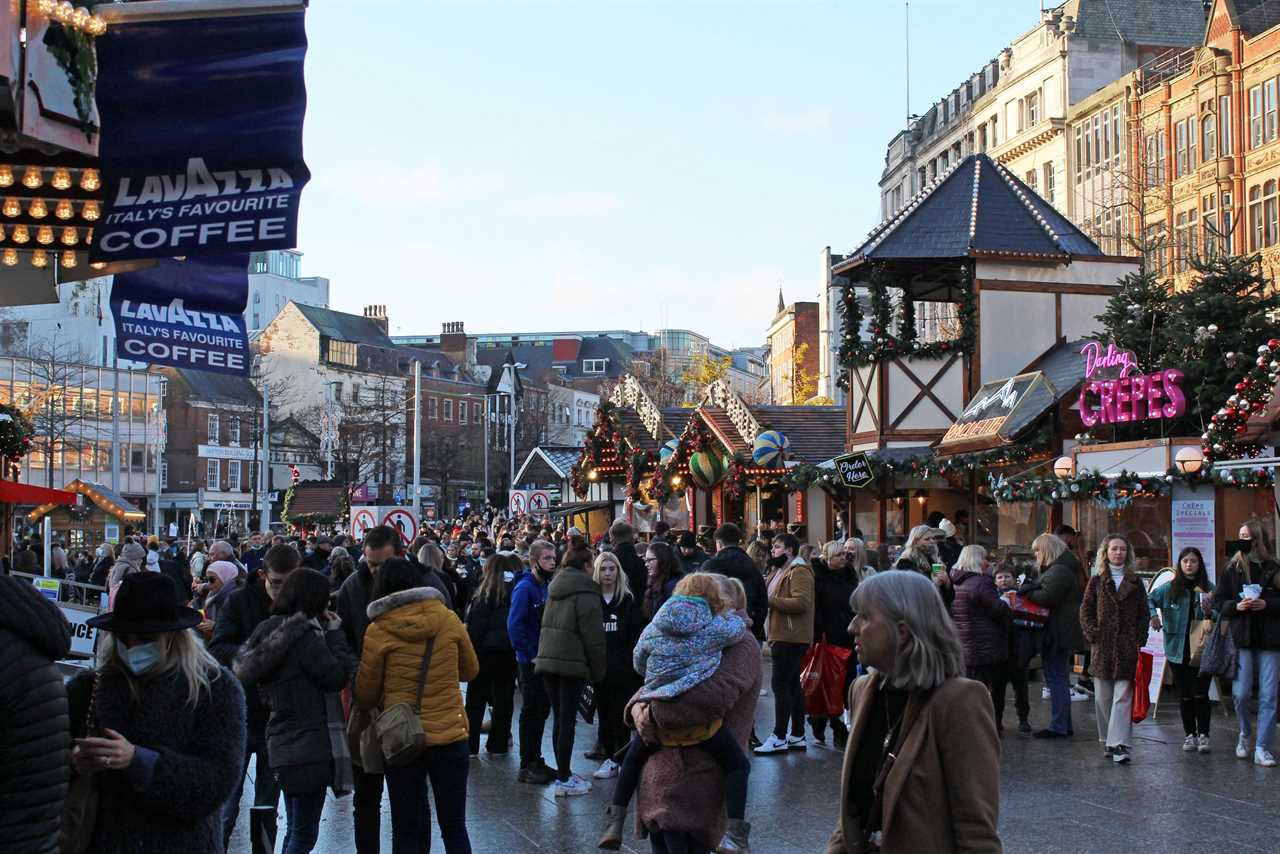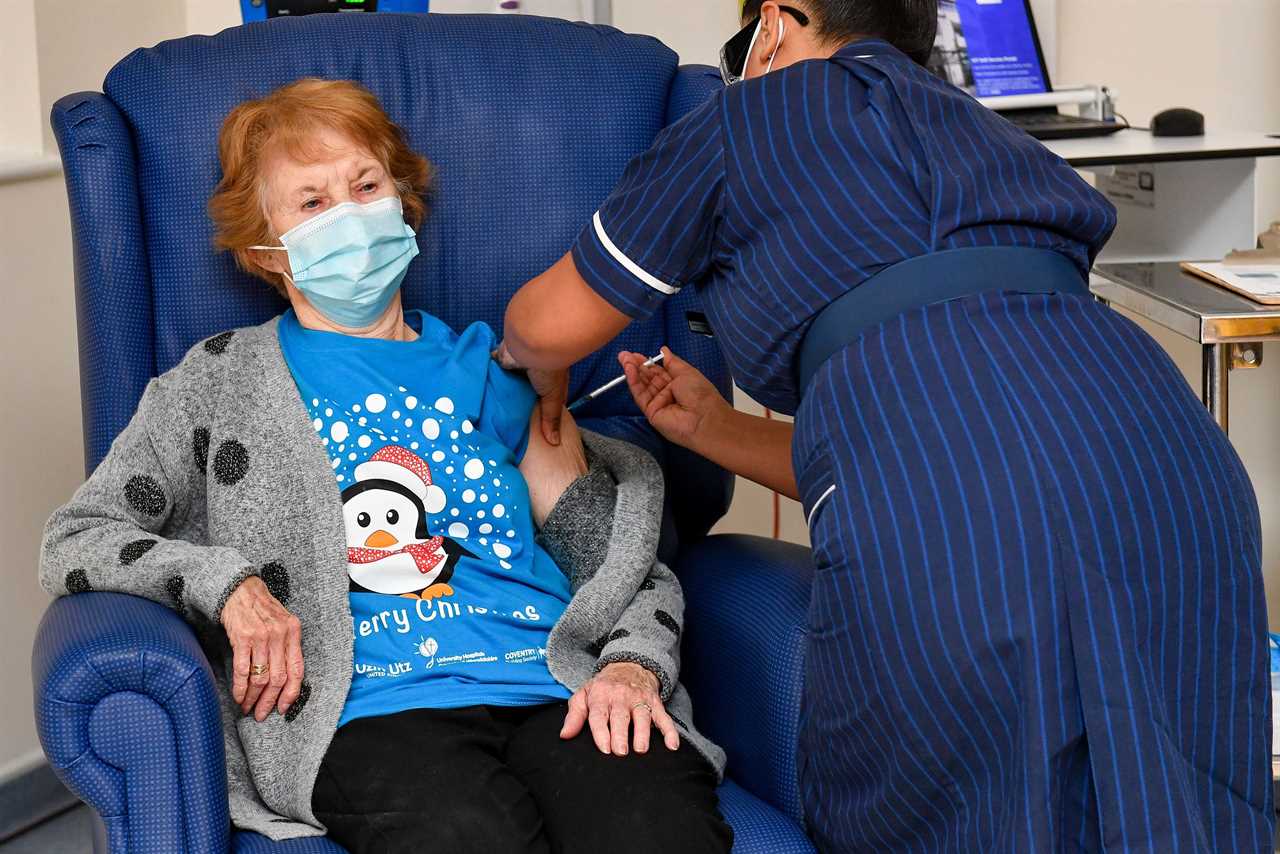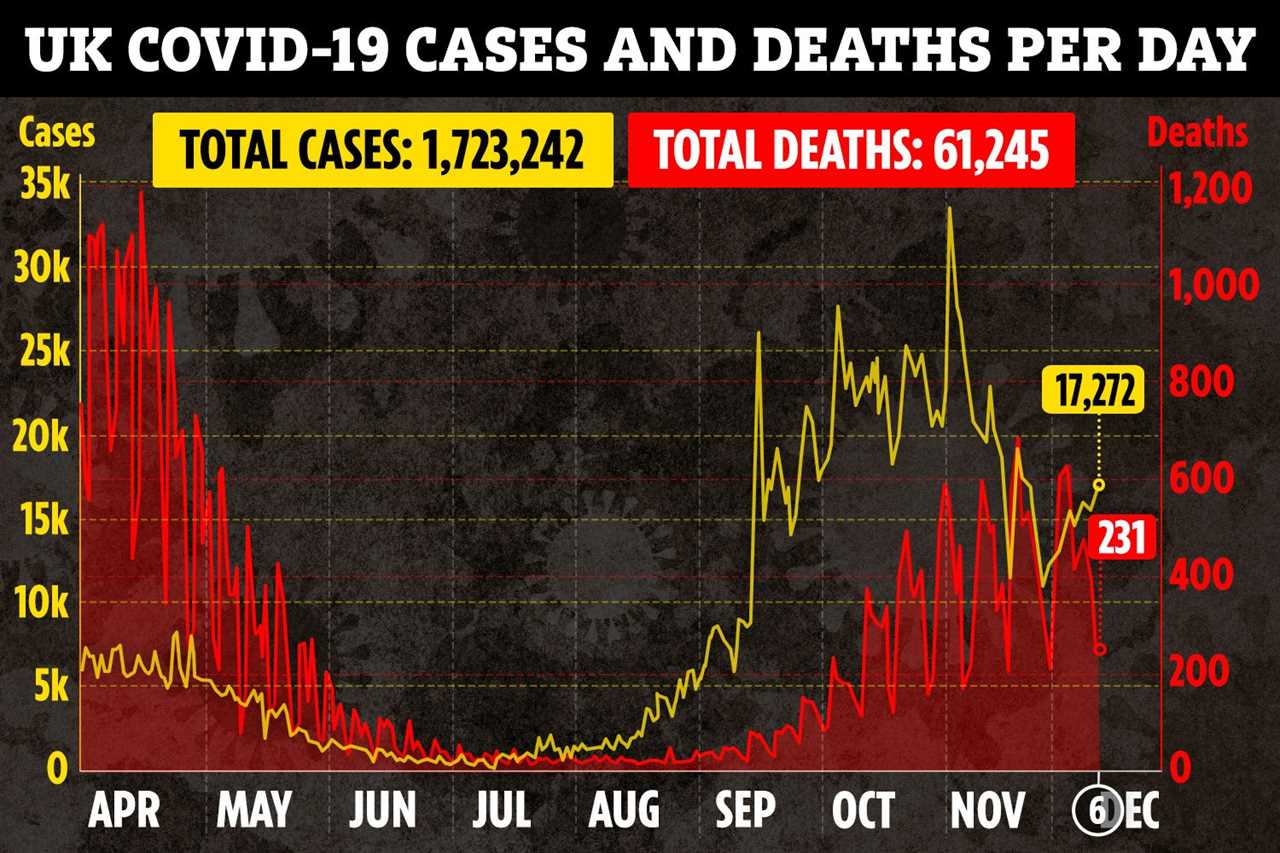FOUR areas may be at risk of going into Tier 3 coronavirus lockdown next week, according to new app data.
England was released from a national lockdown last week and placed into a tier system based on factors including case rates and NHS capacity.

For most of the country, Covid cases per 100,000 in the general population and for the over 60s have fallen or remained stable in the week since.
But in four areas, which are currently in Tier 2, those rates have gone up – putting them at risk of moving into tougher restrictions.
These include Suffolk, Warrington and Cheshire, Buckinghamshire and Somerset and Bath and North East Somerset.
The estimated rates are based on data from the Covid Symptom Study app, run by experts at ZOE and King’s College London.
Researchers behind the app earlier revealed they have created a new dashboard looking specifically at tier risk.
It forms part of their daily report, which is then presented to the Government, and is based on around one million weekly self-reporters and the proportion of newly symptomatic users who have positive swab tests.
Professor Tim Spector, who leads the team, said: “We launched on the ZOE app a complex dashboard about the stats for English tiers based on the govt criteria on prevalence, trends and NHS capacity.”
He added that they will be simplifying the format, but that the data is available to all those who self-report on the app.
ON THE RISE
From the most recent data, published today, it suggests the case rate per 100,000 in Warrington and Cheshire is now 434 and 47 per 100,000 for the over 60s.
In Suffolk, the case rate is 226 per 100,000 and 51 per 100,000 for the over 60s, while in Buckinghamshire it’s 352 per 100,000 and 101 per 100,000 in the over 60s.
The sub-region of Somerset and Bath and North East Somerset has a case rate of 418 per 100,000 and 116 per 100,000 for the over 60s.
It’s worth noting that these areas aren’t necessarily those with the highest cases overall.

The app data suggests that most places that are currently in tier 3, such as Kent and Medway and The Humber, still have the highest cases per 100,000.
England’s tier system, which was re-enforced on December 2, will be reviewed every two weeks with the first review next Wednesday.
It takes into account the case rates and NHS capacity as well as the views of local directors of public health all taken into consideration.
A final decision on whether any areas should change tiers made at a Cabinet committee with changes coming to effect on December 19.
After the fourth review on January 27, the tier regulations will be brought to Parliament again.
JAB ROLL OUT
While 99 per cent of England have been placed in Tiers 2 and 3 from December 2, the Prime Minister has assured MPs that it will be possible for areas to climb down the tier system if infection rates reduce.
The government has said it will use five different measures to decide which tiers are applied in an area, including case detection rates in all age groups, the rate at which infections are rising or falling, and the predicted strain on the NHS.
But the potential roll out of effective vaccines could mean an end to the tier system early in 2021.
The NHS began its biggest mass vaccination programme across the UK – marking a historic day in the fight against the virus.

A 90-year-old gran was the first person in the world to get the Pfizer Covid-19 jab outside a clinical trial this morning.
Margaret Keenan was given the vaccine in Coventry at 6.31am, marking the start of a phased NHS rollout of the vaccine to older people, health staff and care home workers.
Jabs will be administered at 70 hospital hubs across the UK from Tuesday – dubbed “V-Day” by Health Secretary Matt Hancock.
Mrs Keenan, who turns 91 next week, said: “I feel so privileged to be the first person vaccinated against Covid-19.
“It’s the best early birthday present I could wish for because it means I can finally look forward to spending time with my family and friends in the new year after being on my own for most of the year.”
‘ALL FOR BRITAIN’
Prime Minister Boris Johnson visited the vaccination centre at Guy’s Hospital in London on Tuesday morning to meet some of the first people there to receive the vaccine.
Lyn Wheeler, 81, from Bromley, was the first patient to be given the jab at Guy’s and was vaccinated in front of Mr Johnson.
When he asked her how it had been, she said: “It’s all for Britain.”
Health Secretary Matt Hancock appeared emotional during broadcast interviews on Tuesday morning, saying it was a proud day.
He told Good Morning Britain: “We’ve still got to get the vaccine to millions of people and so we’ve got to keep sticking by the rules.

“But there’s so much work gone into this and I’m really, really … it makes you proud to be British.”
Mr Hancock said he hopes “several million” people will have been vaccinated by Christmas, adding that while people must stick to the rules for now: “I have great hopes for summer 2021 and I hope we can lift the restrictions from the spring.”
Meanwhile, NHS England’s medical director, Professor Stephen Powis, said Tuesday’s vaccinations are a “turning point in this pandemic”.
“This is the way out of it, the beginning of the end,” he said.
“It’s not going to happen tomorrow, it’s not going to happen next week or next month.
“We still need to socially distance, we need to follow all those restrictions in place.
“But, in 2021, vaccination programmes will mean we can get back to normality.”
The NHS vaccine programme will see patients aged 80 and over who are already attending hospital as an outpatient, and those who are being discharged home after a hospital stay, among the first to receive the jab.
Care home providers have been asked to book staff in to vaccination clinics, while GPs are also expected to begin vaccinating care home residents shortly.






